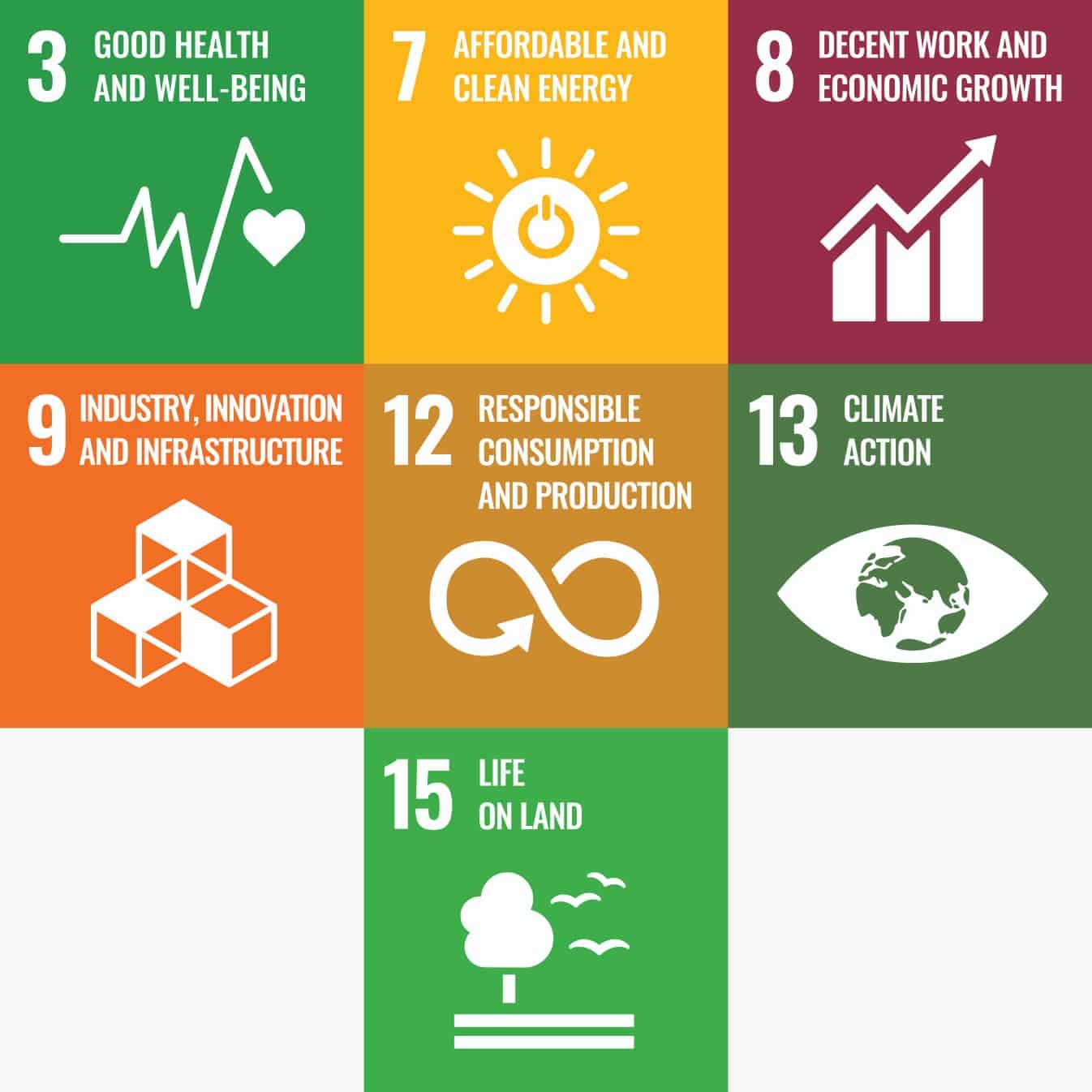Main Navigation
Kazakhstan
Overview
Kazakhstan’s National Development Strategy 2050 and Green Economy Concept serve as the country’s strategic vision on inclusive sustainable development.
Kazakhstan’s economic growth has historically depended largely on the exploitation of fossil fuels. With 42.1 percent of the population residing in rural areas, the country is also a supplier of grains and oilseeds and has an ambitious livestock development programme. However, climate change, environmental degradation and waste pollution present significant threats. Kazakhstan is one of the biggest emitters of CO2 in the world in terms of emissions per capita. It is also flood-prone, exposed to extreme temperatures and impacted by glacier melting droughts. A lack of integrated waste management systems sees 86 percent of solid municipal waste (MSW) ending up in uncontrolled landfills and waste disposal sites.
The government has taken progressive steps to promote sustainable development with ambitious targets set out in its National Development Strategy Kazakhstan 2050 and its Green Economy Concept, which guide the country on inclusive sustainable development. Targets include sourcing up to 30 percent of energy from renewables by 2030, increasing to 50 percent by 2050. More generally, Kazakhstan seeks to promote greater economic diversification through greening its economy.
Kazakhstan’s economic growth has historically depended largely on the exploitation of fossil fuels. With 42.1 percent of the population residing in rural areas, the country is also a supplier of grains and oilseeds and has an ambitious livestock development programme. However, climate change, environmental degradation and waste pollution present significant threats. Kazakhstan is one of the biggest emitters of CO2 in the world in terms of emissions per capita. It is also flood-prone, exposed to extreme temperatures and impacted by glacier melting droughts. A lack of integrated waste management systems sees 86 percent of solid municipal waste (MSW) ending up in uncontrolled landfills and waste disposal sites.
The government has taken progressive steps to promote sustainable development with ambitious targets set out in its National Development Strategy Kazakhstan 2050 and its Green Economy Concept, which guide the country on inclusive sustainable development. Targets include sourcing up to 30 percent of energy from renewables by 2030, increasing to 50 percent by 2050. More generally, Kazakhstan seeks to promote greater economic diversification through greening its economy.
A revised Environmental Code was signed into law on 2 January 2021, which will be supported by approximately 150 normative legal acts to implement its provisions. The code is a key element to implementing important international obligations, framing the sustainable use of natural resources and providing mitigation and adaptation measures for climate resilience.
Kazakhstan joined PAGE in 2018 to support the implementation of its National Development Strategy Kazakhstan 2050 and to support the development of legal regulatory framework for the Environment Code. In 2019, the Ministry of Ecology, Geology and Natural Resources (MEGNR) led a scoping mission, green economy stocktaking and inaugurated a National Steering Committee with representatives from the government and private sector — providing the foundation for support aligned with country priorities.
PAGE work specifically focuses on integrating low-carbon development into Kazakhstan’s strategic vision on green economy and the country’s Green Economy Concept, including its translation to the subnational level through the introduction of green financial mechanisms.
Sustainable Development
PAGE work in Kazakhstan is aiming to contribute to the following SDGs: SDG 3 (Good Health and Well-Being), SDG 13 (Climate Action) and SDG 7 (Affordable and Clean Energy) – through a focus on waste management and related energy and emission related challenges and opportunities; SDG 9 (Industry, Innovation and Infrastructure), SDG 8 (Decent Work and Economic Growth), SDG 12 (Responsible Production and Consumption), and SDG 15 (Life on Land) – through a focus on BATs.
COVID-19 and Green Recovery
Following the outbreak of the COVID-19 pandemic, PAGE facilitated discussions with national counterparts on green recovery options within Kazakhstan. To support a green economic recovery in the country, PAGE will focus on informing the Government’s economic recovery plan and working with key line ministries in the Green Economy Council, aiding the planning and implementation of related policies. This includes the mobilization of national policy experts and think tanks to support the Government in assessing the economic, social and environmental impacts of different policy options for a green recovery, potentially covering fiscal policy and trade, industry and SMEs, green jobs creation, emissions reduction, resource efficiency, and investment flows.
Based on the findings of the assessment work, PAGE will make policy recommendations that best support a green economic recovery. Public awareness initiatives on a green economic recovery, such as a TV series and peer learning events, will facilitate an exchange of information and experiences on the importance of a green economic recovery. PAGE will also conduct workshops to build the capacity of key institutions in the use of modelling tools.
PAGE Milestones
- 2018
Kazakhstan joins PAGE
- 2019
Inception mission, including meetings with ministries, private sector and civil society
Validation workshop held for green economy stocktaking report and framework
Inaugural meeting of national steering committee
First PAGE workplan finalized
- 2020
Stakeholder discussion held on policy vision for waste chapter in Low Carbon Development Concept
Kick-off meeting held with Pavlodar region on utilizing emission payments to promote green SMEs
Low Carbon Development Concept stakeholder consultations held for waste sector
Kick-off meeting held with expert team and MEGNR Resources for development of National Programme of Waste Management
Environmental Permissions working-level consultations held
Introductory online workshop conducted on Sustainable Public Procurement
Fiscal policy analysis stakeholder consultations held on energy and housing and public utilities (HPU)
Consultations held on legal and regulatory mechanisms to support the implementation of the revised Environmental Code
Progress in 2020: A Snapshot
Support for the Low Carbon Development Concept
In collaboration with GIZ, PAGE is assisting Kazakhstan in developing a ‘National Low Carbon Development Concept 2050 (LCDC)’, […]
In collaboration with GIZ, PAGE is assisting Kazakhstan in developing a ‘National Low Carbon Development Concept 2050 (LCDC)’, with finalization in 2021. The LCDC aims to reach goals set within the ‘National Development Strategy Kazakhstan 2050’, including social, environmental and economic elements. The LCDC will be based on the modelling of scenarios and development pathways in nine sectors and will outline the transformation required to meet long-term emissions targets and socio-economic goals, accounting for evolutions in technologies and business models. It will be complementary to the Green Economy Concept, which supports mid-term policy planning.
Draft content for the LCDC has been discussed over a series of technical consultations with more than 100 representatives of governmental bodies, international organizations and NGOs — which will ultimately inform the newly established high-level working group under the deputy Prime Minister.
PAGE specifically contributes to the chapters on waste management and circularity and the reform of fiscal policies, including fossil fuel subsidies.
Policy advice: green economic recovery
In 2020, PAGE supported the UN’s COVID Response Management Team (CRMT) in Kazakhstan with policy advice to integrate the […]
In 2020, PAGE supported the UN’s COVID Response Management Team (CRMT) in Kazakhstan with policy advice to integrate the principles of green and inclusive economic development into the strategies and policies under development by the government. In particular, PAGE provided guidance on the integration of green economy into an updated ‘National Development Strategy Kazakhstan 2025’. UNDP and PAGE consulted with the Ministry of Economy to develop a chapter on green economy.
PAGE is also contributing to the second phase of the Socio-Economic Impact Assessment of COVID-19 in Kazakhstan, initiated by UN agencies based in the country under the leadership of UN Resident Coordinator. In particular, PAGE provided guidance on the integration of green economy into an updated ‘National Development Strategy Kazakhstan 2025’. UNDP and PAGE consulted with the Ministry of Economy to develop a draft chapter on green economy, currently under consideration by the President’s office.
Green fiscal policy analysis for NDC implementation
PAGE is assisting with the development of fiscal policy analysis for specific sectors, which will contribute to NDC implementation […]
PAGE is assisting with the development of fiscal policy analysis for specific sectors, which will contribute to NDC implementation under the LCDC. The study will undertake a scoping of current fiscal measures for low-carbon development and technology deployment in the energy and housing and public utilities (HPU) sectors and will provide detailed assessments of selected fiscal reform options regarding the potential to raise and save public revenues. This will include how these revenues can be used to support investments needed to deliver the LCDC and Kazakhstan’s NDCs, and identify options to mitigate impacts from fiscal reform options.
Work began in November 2020, gathering data and initiating stakeholder consultations. In December, PAGE experts held three stakeholder consultations on energy and HPU tariff regulation, subsidies and market-based development potential with representatives of the Energy, Industry, Ecology and Economy Ministries and the National Fund Samruk-Kazyna.
Technical support to implement the new EcoCode
The country’s Environmental Code from 2007 introduced significant changes in environmental regulation, and also outlined steps for […]
The country’s Environmental Code from 2007 introduced significant changes in environmental regulation, and also outlined steps for a more integrated, cross-sectoral regulatory framework. However, since its adoption, it’s been amended 63 times — highlighting that a more systematic update was needed to fully address the country’s strategic goals.
Kazakhstan has thus worked throughout 2020 on a revised Environmental Code (now EcoCode), which was adopted and signed into law on 2 January 2021. The new EcoCode envisages a rapid reform of the main environmental regulatory framework to open broad opportunities for green growth in the country.
The EcoCode outlines the use of environmental quality standards and environmental assessments (SEA/EIA) in line with international standards; environmental earmarking of emission payments; introducing integrated environmental permits based on best available techniques (BAT); an automated monitoring system; waste management in line with EU directives; and the inclusion of a legal framework for climate change adaptation.
PAGE provided technical support during the process of revision and in parallel, work is underway to assist with the implementation of its new elements.
A vision for the waste sector
PAGE contributed to the development of a policy vision for the waste sector, with a narrative report completed in March 2020. To include […]
PAGE contributed to the development of a policy vision for the waste sector, with a narrative report completed in March 2020. To include a range of inputs on needs, priorities and concerns, consultations were held with a variety of stakeholders. A further stakeholder discussion on the waste sector was co-organized by PAGE, with representatives from MEGNR, NGO’s, associations, SMEs and independent experts from the sector, during the national conference on “Plastic waste pollution: solutions and cooperation” and the results of the discussion were presented during a workshop held for the development of the LCDC.
The Vision’s development is underpinned by the modelling of different scenarios, to test assumptions and specific variations. Financed by GIZ, it analyzes changes in waste flows at the national level between the year 2000 until 2050 and outlines potential interventions on GHG emissions, employment creation and economic activity.Developing a National Waste Management Programme
The development of a sustainable waste sector is a priority of the Green Economy Concept and new EcoCode, but each requires a general […]
The development of a sustainable waste sector is a priority of the Green Economy Concept and new EcoCode, but each requires a general vision and action plan to achieve national indicators. Currently, waste-flows are handled in a fragmented manner and to this end, MEGNR initiated work in 2020 on the ‘National Programme on Waste Management until 2030’ to create a clear vision for the waste sector with a tangible action plan.
Supporting this work, PAGE in August 2020 engaged the Vice-Minister of MEGNR, representatives of the Ministries of Agriculture, Industry and Energy, of Akimats (local governments) and representatives of professional waste associations and submitted a full concept of the programme for MEGNR in December and in parallel, experts began developing the first chapters of the Waste Programme.
Introducing Sustainable Public Procurement
In 2020, PAGE launched an analysis of integrating Sustainable Public Procurement (SPP) and sustainability criteria in Kazakhstan’s public […]
In 2020, PAGE launched an analysis of integrating Sustainable Public Procurement (SPP) and sustainability criteria in Kazakhstan’s public procurement processes, with the analysis to be completed by the end of March 2021.
In December 2020, UNEP, under the PAGE and the UN Development Account (UNDA) project “Enhancing sustainable public procurement for the regional transition to inclusive green economy in Eastern Europe, Caucasus and Central Asia”, held an introductory online workshop on SPP with the support of the Kazakhstan Association of Regional Environmental Initiatives “ECOJER”. It covered the current state of public procurement in Kazakhstan, the assessment in development, UNDA Project and PAGE SPP activities, as well as examples and lessons learned from other UNDP project countries, such as Kyrgyzstan and Georgia.
Promoting green SMEs
MEGNR and PAGE initiated a pilot project focused on the use of an emissions payment fund for subsidizing green business in SMEs […]
MEGNR and PAGE initiated a pilot project focused on the use of an emissions payment fund for subsidizing green business in SMEs as well as the production of guidelines on the efficient use of the payments — aiming to promote green business and green employment by increasing emissions payments for reducing negative environmental impacts; creating favourable conditions for “green” projects by SMEs; and providing financial assistance and incentives. The Pavlodar region is supporting the pilot initiative, which kicked-off in May 2020.
Building individual and institutional capacity
PAGE developed a concept for a ‘Building Back Better training’ for civil servants in Kazakhstan in collaboration with GIZ, which […]
PAGE developed a concept for a ‘Building Back Better training’ for civil servants in Kazakhstan in collaboration with GIZ, which aims to equip public bodies with the knowledge and skills to pursue low-carbon, green and transformative recovery, including best practices and tested solutions from peer countries. This training is designed to support the country in its recovery efforts, using strategies to simultaneously address systemic vulnerabilities and ‘build back better’ to a more sustainable, resilient and inclusive economy. The training will involve three tiers, targeting general level civil servants, managerial directors and higher-level vice ministers.




